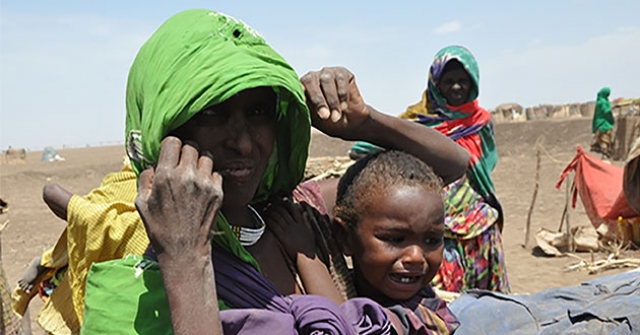Ethiopia needs major health support to stop devastation from El Niño
 4 December 2015 - With Ethiopia in the grip of its worst drought in 30 years due to El Niño, the World Health Organization (WHO) deployed an emergency response team to support the Ethiopian Ministry of Health and partners in coordinating the health sector response across the country.
4 December 2015 - With Ethiopia in the grip of its worst drought in 30 years due to El Niño, the World Health Organization (WHO) deployed an emergency response team to support the Ethiopian Ministry of Health and partners in coordinating the health sector response across the country.
Ethiopia has experienced two poor growing seasons in 2015. Due to delayed rains attributed to El Niño, Ethiopia’s main annual harvest saw a severe reduction in output, which has already put some 8.2 million people in urgent need of food assistance. Every month since January has seen as increase in the number of Ethiopian malnourished children, with estimates stating that 400 000 children will face severe malnutrition in 2016. In addition, some 700 000 expecting and recent mothers are at risk for severe malnutrition.
“The food security emergency is coming against a background of multiple ongoing epidemics in the country. This creates an additional burden for people’s health as well as the health system as malnutrition, especially in children, predisposes them to more severe infectious disease, which can kill quickly,” said Dr Michelle Gayer, Director a.i. of WHO's Emergency Risk Management & Humanitarian Response Department.
Anticipating a major increase in health risks, WHO strengthened its response by mobilizing drugs, equipment and human resources. The situation is expected to worsen over the next eight months and take more than one year for Ethiopia to recover. Vulnerable populations, such as children requiring therapeutic feeding and health care, are particularly at risk of illness and death.
El Niño affects rainfall patterns and temperatures in many parts of the world but most intensely in the tropical regions of Africa, Asia-Pacific, and Latin America which are particularly vulnerable to natural hazards. Typically, some places receive more rain while others receive none causing flooding and droughts causing a variety of public health concerns.
Severe drought, famine, flooding, rains, temperature rises, crop losses and increases in diseases and deaths of people and animals are all known effects of El Niño around the world. The world food crisis of 1982-84, the most severe recorded, has been linked to El Niño, including famines that struck populations in Ethiopia.


